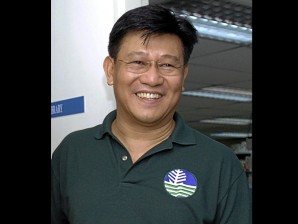MANILA, Philippines—A “convergence strategy” is taking shape among 10 government agencies to help improve the quality of life of the Philippines’ most marginalized sectors, the Department of Environment and Natural Resources said on Thursday.
The DENR recently signed a memorandum of understanding with officials of the Departments of Agriculture, Agrarian Reform, Health, the Department of Interior and Local Government, Labor and Employment, Science and Technology, Social Welfare and Development, Tourism, and Trade and Industry.
In a news release, Environment Secretary Ramon Paje said the agreement was aimed at a holistic approach to the challenges of poverty alleviation, job creation, food security, and public health and safety.
Paje said the agreement was consistent with the existing National Convergence Initiative for Sustainable Rural Development among the environment agriculture and agrarian reform departments which focuses on shared responsibility in the sustainable development of natural resources and communities in rural areas.
“The MOU is an expanded convergence that ensures our programs and projects, particularly those for community-based sustainable livelihood and enterprise development, will be complementary, harmonized and therefore more inclusive to a wide swath of society,” he said.
Under the agreement, each of the 10 agencies will identify high-priority and high-impact programs and projects that have common interests and objectives, particularly those aimed at alleviating poverty.
For instance, on the part of the DENR, its National Greening Program, which seeks to plant trees on 1.5-million hectares of land by 2016, has been identified as the agency’s main contribution to the convergence effort.
Other government projects identified in the convergence program include the Agri-Pinoy Program of the DA, the Program Beneficiaries Development of DAR, the Enhancing Economic Growth and Competitiveness of Local Government Units Program of the DILG, and the Integrated Livelihood Program toward Community Enterprise Development of the DoLE.
The DoLE is also tasked to assist trainees of the Technical Education and Skills Development Training (Tesda), in creating community-based sustainable livelihood and enterprises.
Other contributing programs are the DoST’s Small Enterprises Technology Upgrading Program; the Sustainable Livelihood Program, particularly through the Micro-Enterprise Development Track or the Employment Facilitation Track of the DSWD; and the DTI’s National Industry Cluster Capacity Enhancement Project.
The agreement directs the DoH, through the Food and Drug Administration, to ensure the safety, efficacy, purity and quality of all regulated products through monitoring of all covered establishments.
The DoT, on the other hand, is directed to develop training modules and conduct training programs to upgrade the quality, competence and excellence in the delivery of tourism services.
The agreement is the latest initiative of the executive branch to implement President Aquino’s “social contract” with Filipinos to reduce poverty by building capacities and creating opportunities, Paje said.
The program also recognizes the “vital role of farms and community-based enterprises in contributing to food security and economic growth,” he said.


